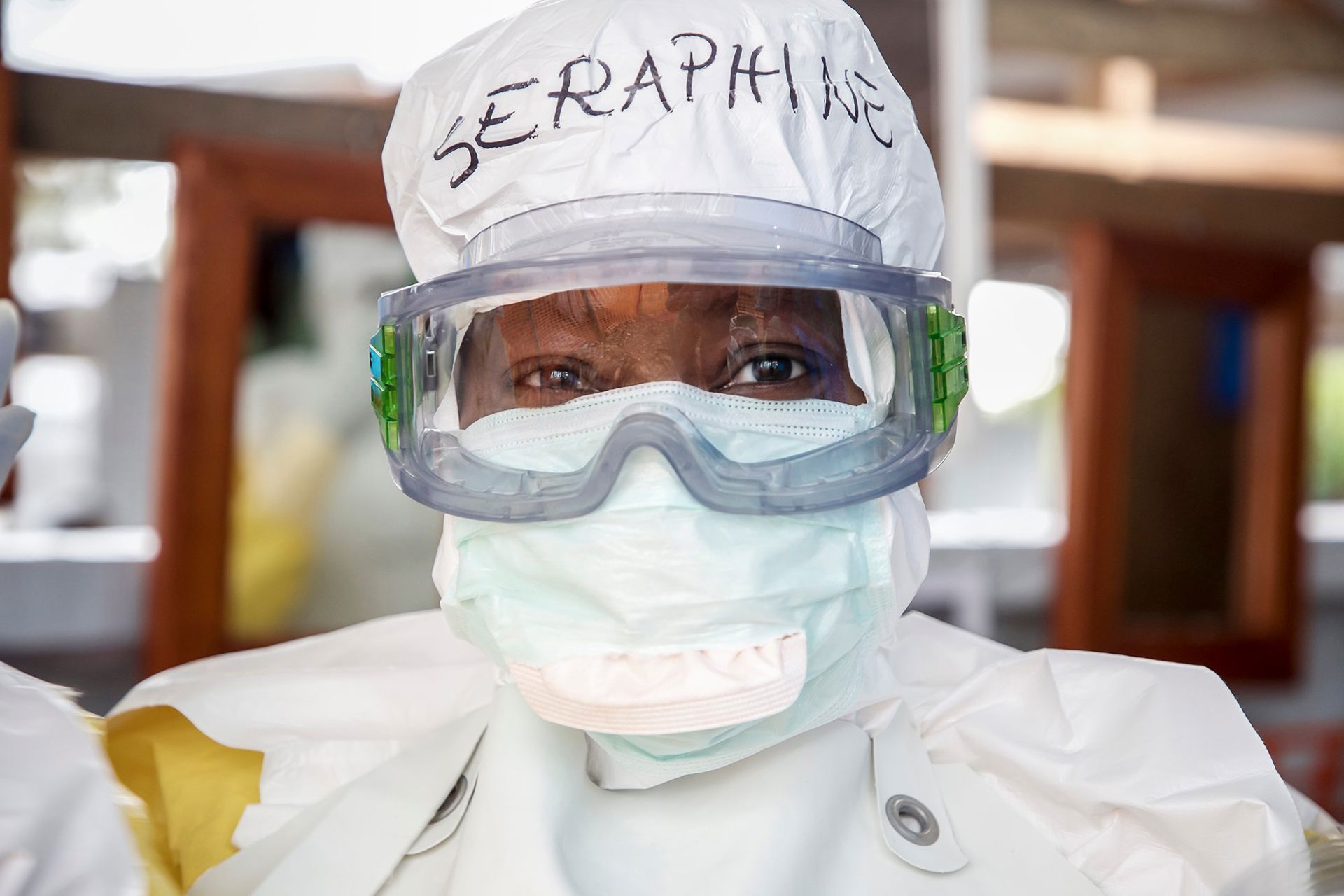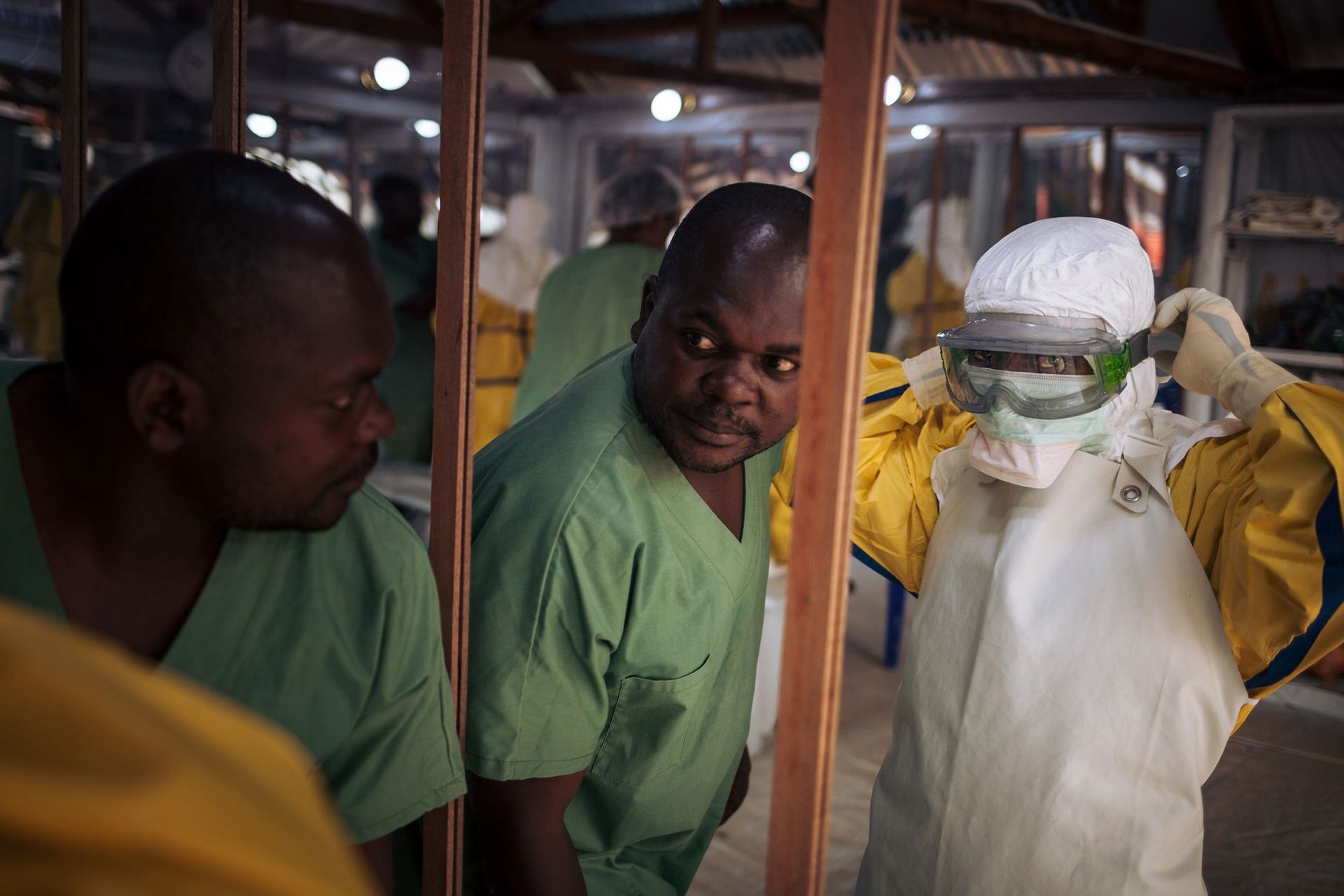Democratic Republic of Congo (DRC) declared the country's largest-ever Ebola outbreak. The outbreak starting from 1 August 2018 is centred in northeastern North Kivu province.
According to the latest figures provided by DRC Ministry of Health, there are 366 cases in total, with 319 confirmed cases, of which 167 died of Ebola.
Retrospective investigations point to a possible start of the outbreak back in May – around the same time as the Equateur outbreak earlier in the year. There is no connection or link between the two outbreaks.
The delay in the alert and subsequent response can be attributed to several factors, including a breakdown of the surveillance system due to the security context (there are limitations on movement, and access is difficult) and a strike by the health workers of the area which began in May, due to non-payment of salaries.
More than three months after the outbreak was declared, the epicentre has moved from the town of Mangina to the much bigger city of Beni, where the number of confirmed cases showed a clear increase in October.
The fact that many of the new cases are not linked to any previously known chains of transmissions is a concern, as it makes it more difficult to trace contacts and control the evolution of the outbreak. Moreover, the number of cases keeps increasing in the Ebola Treatment Centre (ETC) of Butembo, a city three times bigger than Beni in terms of inhabitants. Most patients however are ‘imported cases’, from health zones outside of the city.
Another reason for concern is the geographically scattered pattern of the outbreak. The epidemic is very close to the Ugandan border, increasing the risk of a spill over into that country. The government of Uganda has started a vaccination campaign targeting 3,000 frontline workers as a preventive measure.
Epidemiological teams are still working on identifying all active chains of transmission. This is not simple given that the local community in the affected areas is highly mobile and moves from village to village for work and family reasons, as well as to seek healthcare. Sick people have been known to visit more than one health centre before being identified as suspect cases and referred to an Ebola Treatment Centre.
The national laboratory (INRB) of DRC confirmed that the current outbreak is of the Zaire Ebola virus, the deadliest strain and the same one that affected West Africa during the 2014-2016 outbreak. Zaire Ebola was also the virus found in the outbreak in Equateur province, in western DRC earlier in 2018, although a different strain than is affecting the current outbreak.
CURRENT SITUATION:
So far, 14 health zones in North Kivu and Ituri provinces have reported confirmed or probable cases of Ebola. They are: ITURI (Mandima, Komanda, Tchomia); NORTH-KIVU (Mabalako, Beni, Oicha, Butembo, Kalunguta, Masareka, Musienene, Kyondo, Katwa, Vuhovi, Mutwanga)
MSF RESPONSE:
At the Ministry of Health’s request, MSF is part of the national strategic group coordinating the intervention on several pillars of the response:
- Caring for patients affected by the virus in ETCs (Mangina, Butembo, Tchomia), and people who are suspect cases (Beni, Bunia);
- Communication and health promotion in communities;
- Vaccination of frontline workers;
- Infection prevention and control (IPC): protecting local health structures (and their workers) by helping with screening patients at the entrance, hand and foot disinfection, capacity for short-term isolation of suspect patients, and decontamination of the facilities where confirmed Ebola patients have transited;
- Training staff;
- Supporting surveillance activities.
In total, more than 100 MSF staff members are currently working in Ebola projects in North Kivu and Ituri. This excludes MoH personnel working in MSF structures.
TIMELINE OF THE MSF INTERVENTION:
>30 Jul 2018 MSF receives an alert about suspect cases of Ebola near Beni/Mangina, North Kivu.
>31 Jul 2018 An MSF team from the nearby project of Lubero (roughly 3 hours away by car) goes on site to investigate.
>01 Aug 2018 The Ministry of Health declares an Ebola outbreak in Mangina, North Kivu, northeastern Democratic Republic.
>02 Aug 2018 MSF prepares to respond to the outbreak, within the response plan of the Ministry of Health.
>06 Aug 2018 MSF isolation unit opens in Mangina; teams undertake infection prevention and control.
>07 Aug 2018 Zaire Ebola virus is confirmed, although a different strain from Equateur outbreak.
>14 Aug 2018 30-bed MSF treatment centre opens in Mangina; rapidly expands to 68 beds.
>24 Aug 2018 MSF begins offering therapeutic drugs to eligible patients in the ETC in Mangina.
>02 Sep 2018 MSF team arrives in Butembo following a potential case, which is later confirmed.
>20 Sep 2018 MSF opens a 28-bed Ebola Treatment Centre in Butembo in partnership with the Ministry of Health.
>24 Sep 2018 MSF sends a team to Tchomia, on Lake Albert in Ituri, to attend to 2 confirmed cases and later sets up a treatment center.
>17 Oct 2018 WHO announces that the situation does not constitute a Public Health Emergency of International Concern.
>20 Oct 2018 An armed attack in Beni's Rwenzori area leaves 12 people dead; Ebola activities temporarily stop but restart a few days later.
>09 Nov 2018 The current outbreak records its 319th case, making it the country's biggest-ever known Ebola outbreak.
>15 Nov 2018 MSF opens a transit centre for suspect cases in Beni, to support the capacity of the ETC.



